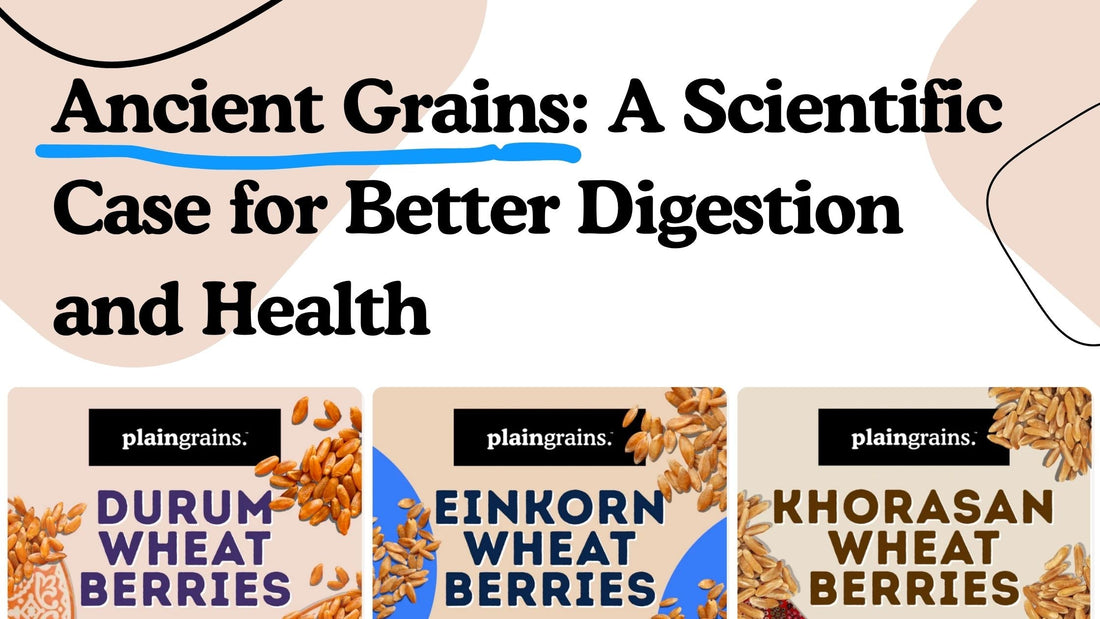
Ancient Grains: A Scientific Case for Better Digestion and Health
Share
In the busy landscape of contemporary nutrition, ancient grains have made a comeback as not just a trend, but as a scientifically backed choice for digestive health and total well-being. Unlike highly processed varieties of wheat currently available, ancient grains like einkorn, emmer, spelt, teff, millet, and sorghum retain their original genetic makeup and a multitude of nutritional advantages (Aweya et al., 2025).
What Makes Ancient Grains "Ancient"?
Ancient grains are types that have remained largely unchanged for hundreds or even thousands of years. They haven't been selectively bred for quantity and homogeneity, so they tend to contain more diverse nutrients and bioactive molecules (Science Societies, 2025).
Digestive Benefits Backed by Science
1. More Fiber Content
Ancient grains tend to contain more dietary fiber than refined modern grains. Fiber is required for:
Promoting regular bowel movements
Feeding beneficial gut bacteria
Anti-inflammatory in the gut
A review paper in Foods (Aweya et al., 2025) notes that cereals containing grains like sorghum and millet are high in insoluble fiber, which is good for colon health and may reduce the risk of colorectal cancer.
2. Reduced Gluten Toxicity
Some ancient wheat varieties (e.g., einkorn) contain distinct gluten compositions that may be less irritating to individuals with non-celiac gluten sensitivity. A 2025 USDA study found that einkorn's gliadin composition is very dissimilar from processed wheat and therefore may be more tolerable in certain individuals (Brown University Health, 2025).
3. Rich in Resistant Starch and Prebiotics
Grains like Teff and Sorghum contain resistant starch, which is not broken down in the small intestine but ferments in the colon — producing short-chain fatty acids (SCFAs) that nourish gut cells and support metabolic health.
Micronutrient Density: Ancient grains are richer in magnesium, zinc, and B vitamins than newer grains.
Antioxidants & Polyphenols: Sorghum and millet contain tremendous amounts of phenolic compounds, which combat oxidative stress and support immune function.
Blood Sugar Regulation: The slower digestion of whole ancient grains leads to a less glycemic impact, which helps in regulating blood sugar.
Agricultural Biodiversity & Soil Health
Ancient grains also play a part in farm biodiversity and soil health. Their genetic resilience gives them the capacity to resist more stresses from the climate, with fewer chemical inputs.
References:
Brown University Health. Ancient Grains and Their Benefits.
Science Societies. What is the Future for Ancient Grains?
Written by: Katie Evans
Katie is our student intern. She is currently in her junior year at Cal Poly Pomona with plans to graduate with a Bachelors of Science in Food Science and Technology in May of 2026. She writes some of our blog posts and will help with future product creations here. She loves vintage shopping, photography, and of course, healthy eating with whole grains!
